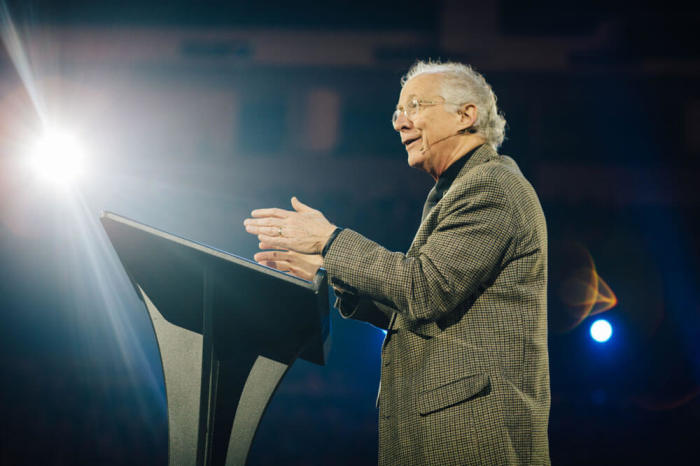Can caffeine be harmful to a Christian’s spiritual life? John Piper answers

Notable Bible teacher John Piper recently addressed the question of whether caffeinated drinks like energy drinks can have a negative influence on a Christian’s spiritual life.
In Monday's episode of the “Ask Pastor John” podcast, a listener identified as José told Piper that caffeinated drinks were “controversial in our youth group.”
“As someone who likes them, I was wondering if there are any negative effects or reason to not drink them,” José asked. “They help me focus and have energy during my work shift. I only drink one every two or three days, but I would like to have some spiritual insight in order that I might run this race without being slowed down.”
As part of his response, Piper focused on 1 Corinthians 6:12–13, which reads: "'I have the right to do anything,’ you say — but not everything is beneficial. ‘I have the right to do anything’ — but I will not be mastered by anything. You say, ‘Food for the stomach and the stomach for food, and God will destroy them both.’ The body, however, is not meant for sexual immorality but for the Lord, and the Lord for the body.”
“So, the body matters to God morally. And, in particular, foods matter and sex matters. And so, the guidelines he gives matter,” Piper said.
Piper added that the question was “part of a much bigger issue,” specifically a question about “the proper use of not just caffeine but other stimulants, medications.”
“Are energy drinks, or whatever I’m taking, are they masking deeper problems that I’m not dealing with, because I’m masking them, or are they helping me really address and be freed from the deeper problems that I may have?” he said.
“If José or any of us is masking deeper problems with stimulants, then they’re not being used as a gift from God for our good; they’re being used as a flight from truth and from the good that God wants to do deeper down.”
Piper went on to offer “three summary guidelines” regarding the consumption of caffeinated drinks: “Are they truly helpful?” “Are they dominating me, mastering me, and obscuring that Jesus is my real master?” And, “Am I using them in love? Am I building others up? Am I seeking to build my own faith and the faith of others?”
“I have a box of energy drinks in my office,” Piper acknowledged. “If I’ve got a pressing task and I cannot stay awake, yes, I’ll go there.”
“If my real problem is that John Piper doesn’t have the discipline to go to bed at night and therefore get six hours instead of eight hours of sleep, and therefore he’s always falling asleep at his tasks, and thus he resorts to an artificial stimulant, that’s masking, that’s hiding, that’s running away from God.”
Last September, Piper garnered controversy when he wrote a post on X about whether congregations should "reassess whether Sunday coffee-sipping in the sanctuary fits."
"Considering the New Testament church primarily met in folks' homes, and often shared a common meal together, sipping coffee in the sanctuary should not only be practiced, but encouraged," replied Evangelical podcaster Jimmy Humphrey.
In a January podcast episode, Piper elaborated on his sentiments, believing that "sipping coffee in the holiest hour of congregational worship does not fit with the reverence and awe that Hebrews 12:28 calls for.”
"Sipping coffee is not the heart of the matter. The heart of the matter is that people and leaders don't have a heart that resonates with what I mean by 'reverence and awe' and the holiness, the sacredness of that hour of congregational worship on Sunday morning (usually)," Piper stated back in January.
"Those realities are not prominent in their mind and heart, those reverent realities. They know those words: reverence, awe. They know the words, but the words don't have compelling existential content, with the kind of serious joy that makes people eager for reverence and awe. They're just words."




























